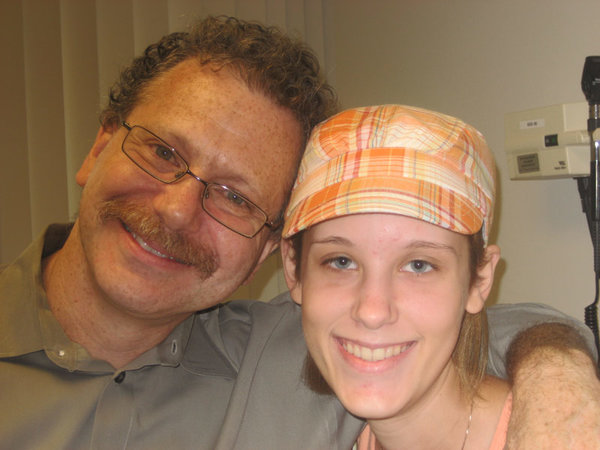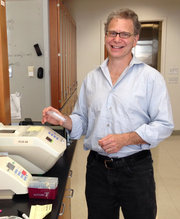How We Help
The Legacy Program at Washington University School of Medicine
In this past year we have made great strides in ongoing projects and with your support have advanced a remarkable new program, “The Legacy Program” for post-mortem brain tumor donation. The Legacy Program is a collaborative effort between patient families from the St Louis Children’s Hospital Pediatric Neuro-Oncology Program and a team of broadly skilled and highly interactive brain tumor investigators at the Washington University School of Medicine.
The founding goal, in the words of the first donor, is “to do something great with my (his) brain”. This remarkable 16 year-old young man was compelled to make certain that we learned as much as we could from his struggle with brain cancer. We promised him and his mother that we would do something far-reaching with his brain and tumor. Our approach has been to hypothesize that in the three-dimensional structure of the tumor are keys to the mechanisms of treatment resistance and recurrence. Specifically, we are interested in features of the tumor as an ecosystem that are unapparent in standard research approaches, which use very small volumes of the tumor as representations of the tumor in its entirety. Instead, we have generated very high definition images, extensive pathological characterization and DNA sequencing of many different regions of the tumor. This approach allows us to recreate a three dimensional map of the tumor that is very different from the typical views of brain tumors. We expect that understanding even one tumor with this approach will generate new concepts, new hypotheses and new directions that better capture the reality of recurrent brain tumors as they grow after treatment. The only way that we could have had the flexibility and wherewithal to take advantage of this unique opportunity and perform the cutting edge research we have been doing, is the unrestricted support we obtain through the Taylor Rozier Hope for a Cure Foundation. This type of support is so critically important and so rare. It is this type of support that allows us to do the most innovative research.
We currently have four brains in the Legacy Program bank. Families that are considering donations have expressed their appreciation for the continued opportunity for their child’s cancer to have a benefit for other children, even after they have passed. The deep significance of these donations and the support for the research from other families makes this a very special program with the potential to do truly great things.
The Rubin Lab at Washington University School of Medicine
With the generous support of the Taylor Rozier Hope for a Cure Brain Tumor Fund, the Rubin Lab at Washington University School of Medicine has been able to work towards the development of novel therapies for glioblastoma. In large part this work would not have been possible without their support as it involves experiments that would have been difficult to fund through standard research grant mechanisms. In these experiments we are seeking to discover novel drugs and testing them alone and in combinations with standard treatment in mouse models of glioblastoma and other pediatric brain tumors.
To date, we have completed three projects that we hope will lead to new clinical trials for children with glioblastoma. In the first we performed a screen of a two-thousand compound drug library and identified two lead candidate drugs with significant anti-tumor effects in mice. In the second we combined a novel anti-tumor agent with the commonly used drug Avastin and defined a dosing regimen that shows synergistic effect in a glioblastoma model. In the third study we identified a brand new therapeutic target in glioblastoma.
With continued support of the Taylor Rozier Hope for a Cure Brain Tumor Fund we will advance each of these projects and hope to open new clinical trials for children with glioblastoma and other malignant brain tumors.
Learn more about the Rubin Lab at Washington University School of Medicine.

